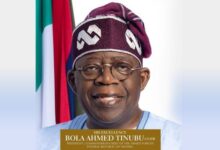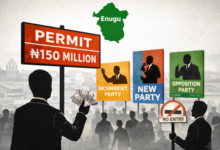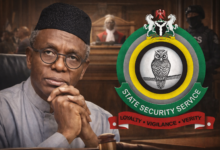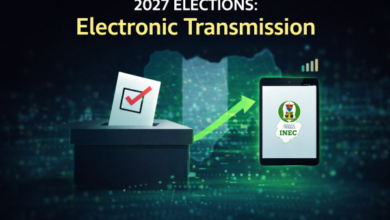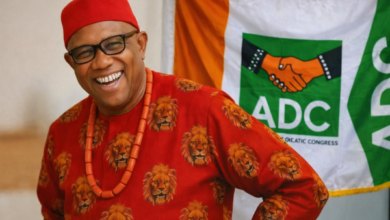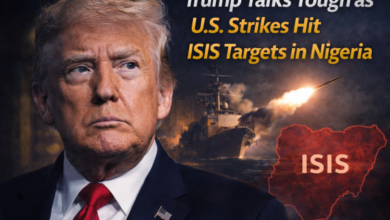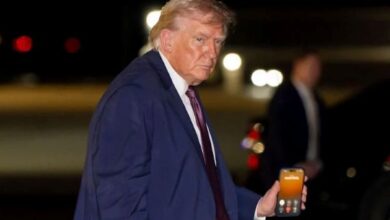INEC cautions against inducements by money bags in 2023 poll

The Independent National Electoral Commission (INEC) has tasked Nigerians to reject possible inducements by money bags trying to buy their votes in 2023 general election.
The INEC Chairman, Prof. Mahmood Yakubu, said this at a day stakeholders’ summit on addressing the influence of money in 2023 general election on Monday in Abuja.
The summit was organised by INEC in collaboration with the Independent Corrupt Practices Commission (ICPC), the Economic and Financial Crimes Commission (EFCC), the National Broadcasting Commission (NBC), the Nigeria Police Force and the Advertising Regulatory Council of Nigeria (ARCON).
Yakubu urged Nigerians to report incidents of vote-buying to the commission and other relevant authorities for action.
“The commission is aware that legal provisions and the actions of the agencies are critical but will not be enough to completely root out the deep-seated cancer of corrupt money in our elections.
“The concerted actions of citizens are crucial. Citizens must reject inducements to sway their votes through vote buying.
“They must also engage effectively in stopping the negative use of money in our electoral process generally by reporting cases to INEC and other agencies.
“In addition, civil society organisations should make this a major plank of both their pre-election and election observation activities,” he said.
Yakubu added: “Financial institutions, religious organisations, traditional institutions, the media, civic bodies and above all, citizens must also join in this fight.’’
He said that money politics tended to destroy the basis for democratic election, which provided for citizens to freely choose those who should exercise power on their behalf.
Yakubu said that it could also destroy the professional and independent conducts of INEC officials and other public agencies involved in election.
“Even more worrisome is the high prospect that criminal money may find its way into our elections through money laundering.
“Above all, the pernicious use of money tremendously increases the likelihood of election violence due to a win at all costs mentality among contestants who would have invested a fortune in election.
“Surely, election is not a business venture for profit. Instead, it is an application to serve the people with the understanding that they may prefer someone else on one occasion.
“But then, there would be an opportunity to reapply after four years. Citizens’ choices must never be subverted by the negative use of money,” he said.
Yakubu said that over the years, INEC had introduced a number of measures to get the ballot boxes closer to voting cubicles, listing the measures to include the slight reconfiguration of Polling Units (Pus).
He said that this was to discourage the exposure of the marked ballot papers by voters for vote-buyers.
He added that INEC had also banned the use of smart phones and photographic devices by voters in the voting cubicles, which was still inforce.
Yakubu said that the measures had recorded limited success, hence, the extension of its collaboration with stakeholders.
“Today, we commence yet another initiative to sanitise and strengthen our electoral process. We believe that in dealing with the corruption of our elections by money, the commission cannot do it alone.
“To succeed we must mobilise every relevant national institution to support our effort. We must rely on the professional and other capacities of cognate agencies in our determination to improve electoral administration in Nigeria,” he said.
Yakubu said that as a commission, INEC harboured no illusion that it was going to be easy to root out the negative influence of money on election, saying however, that it was determined to tackle it.
“We fully realise that today’s initiative will not go down well with people who may not be committed to the growth of our electoral system and the consolidation of our democracy.
“We expect them to fight back. There will be both covert and overt pressure, countervailing actions and even threats by these vested interests.
“I wish to reiterate that our loyalty is to Nigeria and our allegiance is to Nigerians. We are committed to working with the collaborating agencies to see that this initiative succeeds in the 2023 general election and beyond,” he said.
Yakubu reiterated the commission’s resolve to continue to employ both technology and administrative measures to strengthen Nigeria’s electoral process.
“I assure Nigerians that preparation for the 2023 general election is on course and we shall not be swayed from that course.
“Be assured that the Biomodal Voter Accreditation System (BVAS) has come to stay. Electronic transmission of results has come to stay,’’ Yakubu said.
On his part, Chairman Inter-Party Advisory Council (IPAC), Yabagi Sani, urged all stakeholders and lovers of democracy to rise up against the use of money to subvert the wish of the people in 2023 general election.
He said if the use of money was allowed in the election there would be no guarantee for credibility and transparency.
“Nigeria is in an urgent need for upright, selfless, competent political leadership to drive the country toward the actualization of its promise of greatness, prosperity as one of the leading democracies of the world.
“This lofty desirable and achievable goals can only become a reality if INEC, security agencies, the judiciary and all other stakeholders in the electoral process are resolute and impartially play their roles in ensuring free, fair and credible elections in 2023.
“One of the greatest tasks before all of us is to deal with the monster of money influence in the electoral process,” he said.
Sani said that the Federal Government’s naira redesign was an attempt to tackle the cankerworm of vote-buying and selling in the Nigeria electoral process.
He said that although the policy might result in some hardship, the implications of not doing anything at all may be more harmful to Nigeria’s democracy.
“The effectiveness of the measure may only be achieved if the relevant agencies like EFCC, ICP and Police carry out their mandate in the absolute interest of the nation and not the government of the day,” he said.’


